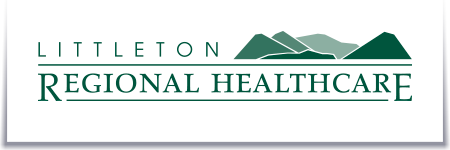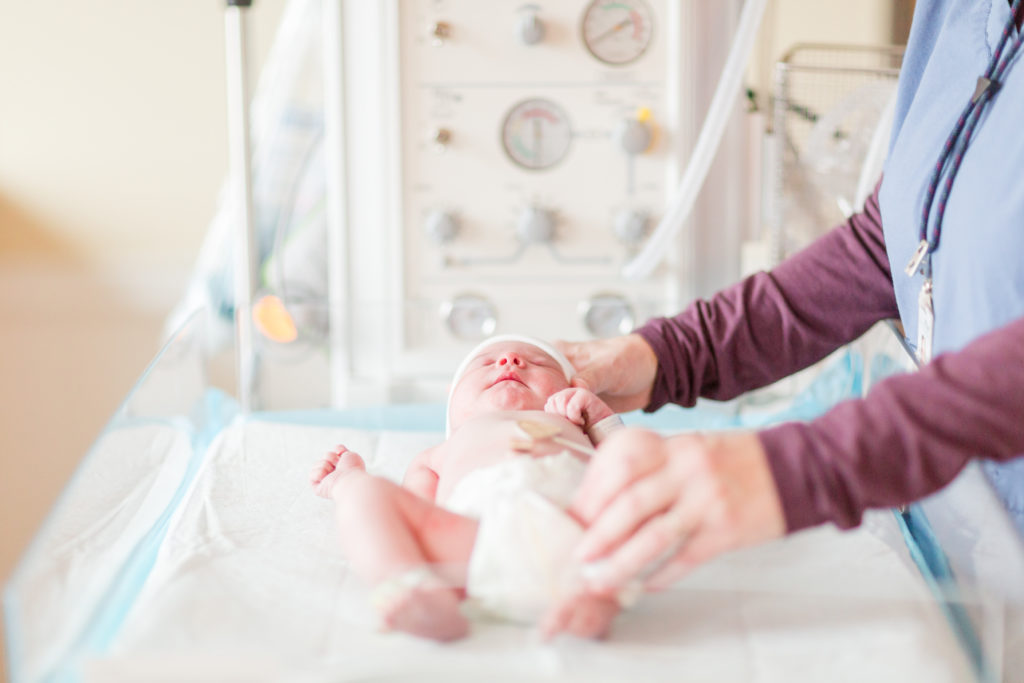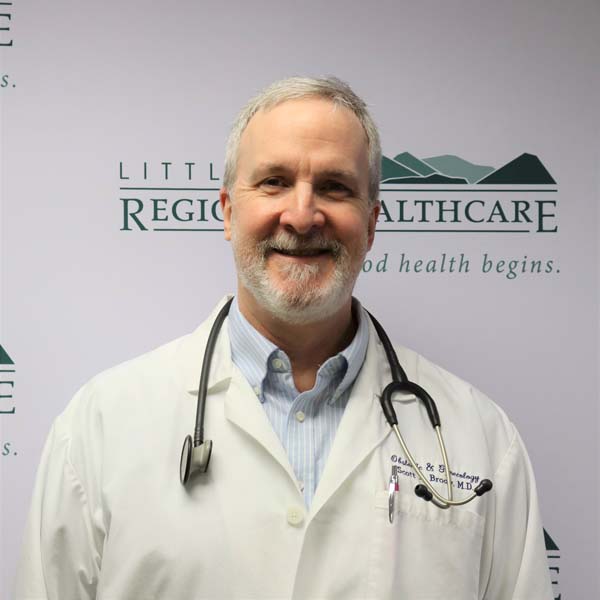 The staff of the Sauter Birthing Suite of Littleton Regional Healthcare invites you to our special world. Our mission is to provide a high-quality, positive birth experience not only for our mothers but also for the entire family. Our goal is to make families feel welcome while giving the very best medical care in a comfortable, home-like environment.
The staff of the Sauter Birthing Suite of Littleton Regional Healthcare invites you to our special world. Our mission is to provide a high-quality, positive birth experience not only for our mothers but also for the entire family. Our goal is to make families feel welcome while giving the very best medical care in a comfortable, home-like environment.
Committed to Excellence
The nursing staff at Littleton Regional Healthcare is committed to clinical excellence and strives to give the best patient care. Over 50% of the nursing staff hold national certifications in Inpatient Obstetrics, Newborn Nursery Care, Maternal Newborn, Pediatrics, or Child Passenger Safety.
Our Providers
More Information
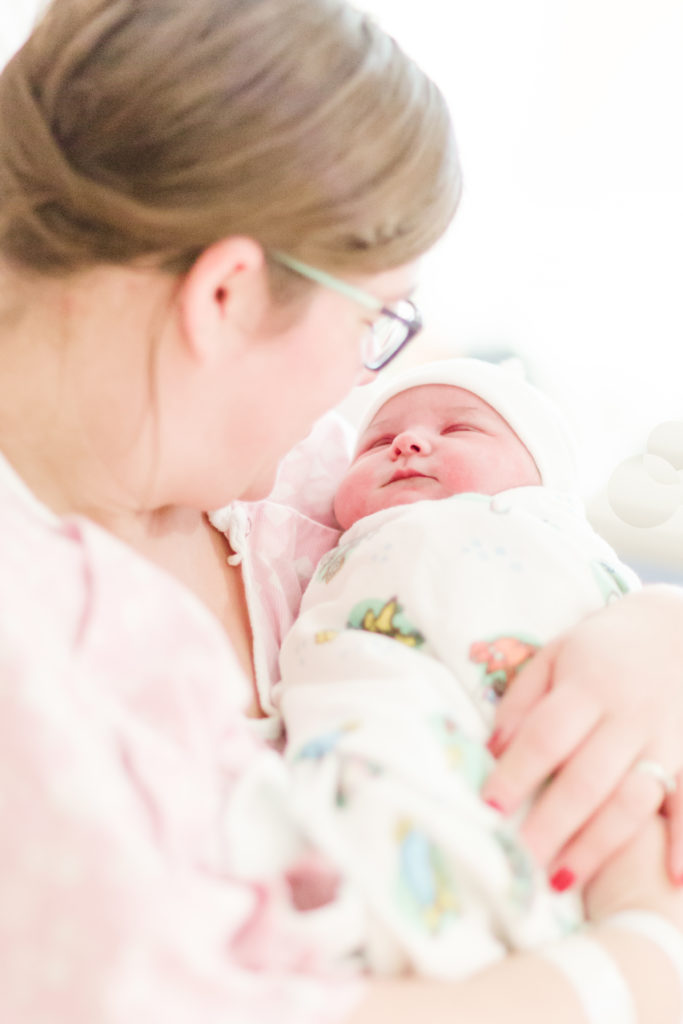 Littleton Regional Healthcare is family-centered. We help the expectant family prepare for a new baby by assisting them throughout the various stages of pregnancy and providing support through the challenges of early parenting.
Littleton Regional Healthcare is family-centered. We help the expectant family prepare for a new baby by assisting them throughout the various stages of pregnancy and providing support through the challenges of early parenting.
Classes are not based on one particular philosophy but discuss many strategies to cope with labor, including hydrotherapy, relaxation, and breathing. The classes also include early parenting and childcare, with a focus on the first few weeks at home. Pregnant women are welcome to attend classes with their labor support person; women may also come alone.
If you have questions concerning the courses, please call the Littleton Regional Healthcare Birth and Parenting Program at 603-444-9335. Register early as space is limited. Classes are FREE to those who deliver at our wonderful family-centered unit.
Pregnancy, Birth and Parenting Series
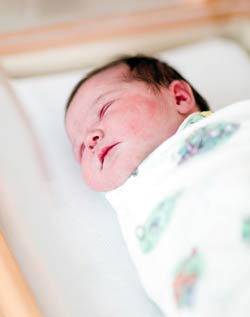 Pregnancy, Birth, and Parenting is a series of four (4) classes to begin at approximately the 28th – 32nd week of pregnancy. Classes guide couples through signs of labor, phases of labor, techniques for coping with labor and birth, and the basics of infant care, including feeding. The class also takes time to explore the adjustments of becoming a new parent. It will include information about car seats and safe sleep/SIDS and infant CPR.
Pregnancy, Birth, and Parenting is a series of four (4) classes to begin at approximately the 28th – 32nd week of pregnancy. Classes guide couples through signs of labor, phases of labor, techniques for coping with labor and birth, and the basics of infant care, including feeding. The class also takes time to explore the adjustments of becoming a new parent. It will include information about car seats and safe sleep/SIDS and infant CPR.
One Day Intensive Saturday Classes: One Day Intensives are offered first to those who live over 40 miles from LRH, and then on a first-come, first-serve basis. We offer a condensed version of the above classes on an as-needed basis.
Sibling Tours: Sibling Tours of the OB unit in the company of a parent help them develop an understanding of the birth experience. During the last trimester, call the OB department at 603-444-9567 to schedule a visit.
Refresher Course: The Refresher Course is a single 2-hour review of the techniques of labor and birth and unexpected outcomes for families who have given birth before and desire a refresher. It also focuses on preparing children for labor, becoming a sibling, and parental adjustments. It is recommended for couples in their last trimester. Vaginal birth after cesarean delivery is included if indicated. Please register in the 5th month of pregnancy. We arrange these courses on an as-needed basis, so please call 603-444-9335 for scheduling.
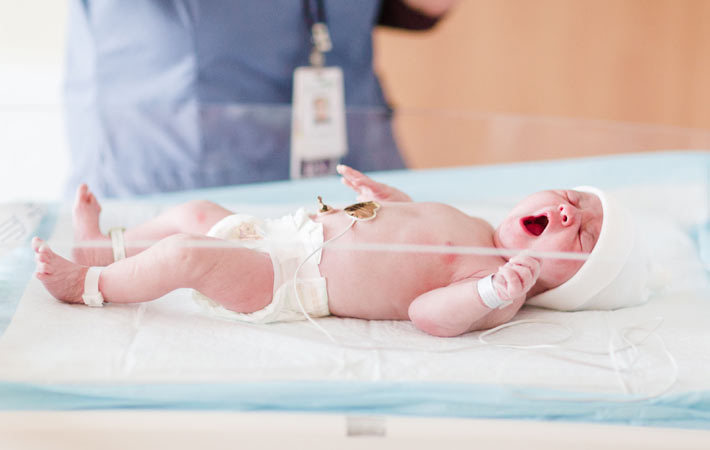
- Please review the current Visitor Policy.
The staff at Littleton Regional Healthcare recognizes that labor and the birth of a child are exciting, life-changing events. At the Sauter Birthing Suite, we invite moms to give birth to their babies in a way that works best for them and their families.
Our private birthing rooms with tubs and showers provide a comfortable environment for labor, delivery, and postpartum care. Dim lighting is available to help create a relaxing and peaceful atmosphere. Moms are welcome to bring their clothes and music or any other items that will assist them in their labor and delivery.
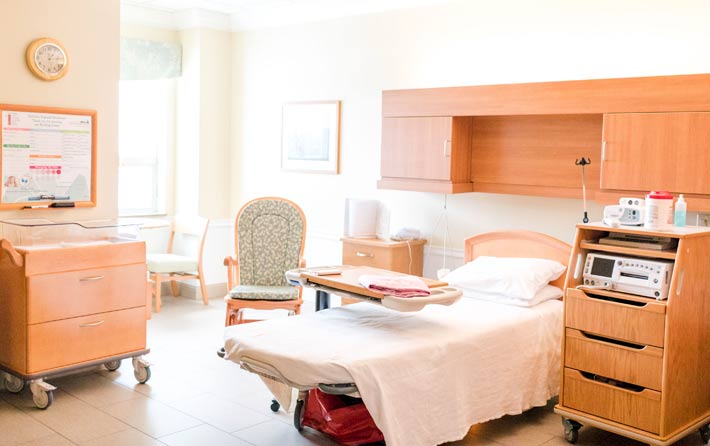
Moms decide whom they want present during their labor and delivery and share this information with their nurse upon admission. We do not routinely restrict visitors. As long as mom is feeling up to visitors, visitors are welcome.
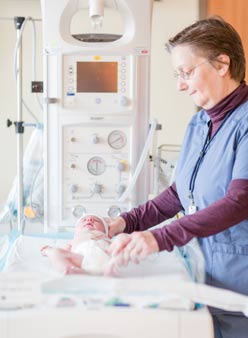 The mother and/or birth partner may choose to cut the umbilical cord and give the baby’s first bath. This person is also welcome to bring his or her food for nourishment during the hospital stay – there are mini-refrigerators in every room.
The mother and/or birth partner may choose to cut the umbilical cord and give the baby’s first bath. This person is also welcome to bring his or her food for nourishment during the hospital stay – there are mini-refrigerators in every room.
We encourage skin-to-skin or direct contact between mother and baby for comfort and temperature control immediately after birth. Moms who choose to breastfeed do so during this time. We weigh each baby within 60 to 90 minutes after birth in the mom’s room.
Comfort Techniques for Labor
Because women’s perceptions of labor pain vary, so do their choices about pain management and comfort. Our staff’s philosophy is to partner with the woman to enable her to have the labor she envisions under the safest conditions. We have many options for non-medicated and medicated labor to help women through the process.
A variety of comfort techniques for labor and birth include:
- Relaxation and breathing
- Shower or bath (Hydrotherapy)
- Massage and/or pressure
- Walking and position changes
- Birthing ball, rolling pin, warm packs
- Medications
- Epidurals
- Nitrous Oxide (laughing gas)
What to bring to the hospital
We will provide you with all the things to care for yourself and your baby while you are here. You simply need to bring clothes to go home in for yourself, an outfit for the baby to go home in, and a car seat.
Please see Child Passenger Safety below for more information.
After Your Baby is Born
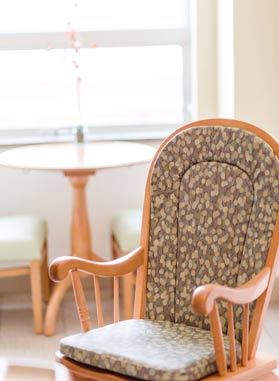 Your nurse will check on you and your baby frequently. If you need something, please let the nurse know.
Your nurse will check on you and your baby frequently. If you need something, please let the nurse know.
We encourage you to feed your baby within the first hours. We will help you get started with this. Try to keep your baby with you as much as possible so that you will be used to holding and caring for your baby before you go home. Your nurse will assist you in learning how to care for your baby while you are here. Please ask questions.
We invited new moms to enjoy a special “Dinner for Two” in their room before leaving with their little one.
Before discharge, your baby will receive a hearing screening, a cardiac (or heart) screening, a newborn metabolic screening, which we obtain by a small sample of blood from your baby’s foot (the state of New Hampshire requires this), and an assessment for newborn jaundice. You will be required to complete the birth certificate worksheet. Upon completion of this, you will receive a parent notice in the mail. To get an official copy of the baby’s birth certificate, you will need to go to the town clerk’s office in the town you live in to request this. If you live in Vermont, you will need to go to the closest New Hampshire Town Clerk.
Security
All the Maternity Department’s internal entrances are secure; all employees use a pass card to enter and we ask visitors to use the red phone, next to the main entrance, to speak with nursing staff prior to entering the department. This enhances privacy and security for patients, their families, and our staff.
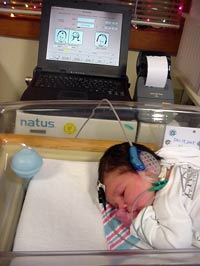 Littleton Regional Healthcare offers a newborn hearing screening program for infants born at the hospital.
Littleton Regional Healthcare offers a newborn hearing screening program for infants born at the hospital.
We use otoacoustic emissions (OAE) or a screening technology based upon the Auditory Brainstem Response (ABR) test. The ABR screener tests the infant’s hearing pathway from the ear to the brainstem. It records brainwave responses to a series of soft clicks and compares them to a pattern of normal responses. The test, which is conducted while the infant sleeps, is non-invasive and takes from 4 to 7 minutes. Parents have the results before the discharge of the child.
We can effectively address the needs of children born with hearing loss and help their families.
This is a valuable program, one that Littleton Regional Healthcare is proud to offer to the community. The hospital’s obstetric nursing staff has received training on the use of the OAE & ABR equipment and does the initial newborn hearing screening test.
Nearly 24,000 babies are born in the United States each year with hearing loss. Without the ability to hear, an infant cannot master communication skills. The critical period of opportunity to gain language is from birth to 3 years, yet on average, infants with hearing impairment are not detected until the child reaches two years of age or later with mild hearing loss. Children with a hearing loss that goes undetected may never catch up with a normal hearing child. This situation can have a profound impact on the child’s life, affecting not only language and learning abilities but also the child’s social and emotional development. The key is early detection so that treatment can start early, states the position statement of the American Academy of Pediatrics.
A 1997 study done at the Marion Downs National Center for Infant Hearing reported that normal hearing children at age 3 have a vocabulary of between 500 and 1000 words. If a hearing loss goes undetected until the child reaches the age of two, a child’s vocabulary is limited to only 0 to 50 words. If a hearing impairment is discovered at birth and treated, that child will develop a vocabulary of 350 to 700 words, which is within the normal range. An estimated $129 million could be added to the U.S. economy each year if children born deaf were provided early intervention that resulted in superior language skills.
For additional information on Littleton Regional Healthcare’s newborn hearing screening, please call the Sauter Birthing Suite at Littleton Regional Healthcare 603-444-9567.
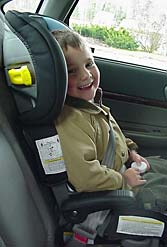 In New Hampshire, 90% of car seats that are checked at car seat check-up events are incorrect. Studies have shown that child safety seats reduce fatal injuries to infants by 71% and to toddlers by 54%. With this in mind, LRH maternity staff feels strongly that it is their responsibility to educate parents about car seat safety. In 2021, over 330 children went home in safe car seats.
In New Hampshire, 90% of car seats that are checked at car seat check-up events are incorrect. Studies have shown that child safety seats reduce fatal injuries to infants by 71% and to toddlers by 54%. With this in mind, LRH maternity staff feels strongly that it is their responsibility to educate parents about car seat safety. In 2021, over 330 children went home in safe car seats.
LRH is fortunate to have several staff members who are trained in child passenger safety. LRH is committed to ensuring that your newborn leaves the hospital in a safe car seat that is installed in your vehicle correctly. All the Child Passenger Safety Technicians (CPSTs) are very familiar with different car seats, seat belts, and the proper placement of your child in the seat. They will also assist you in installing the seat into your vehicle.
Child Passenger Safety Rules
- Every person on every ride must use a car seat, booster seat, or safety belt that’s right for his or her weight and height.
- All children under the age of 13 rides in the back seat.
- Know where the airbags are in your vehicles. They can be in the front seat, on the roofline, or in the back seat. Some airbags can be turned off.
- Follow manufacturer’s instructions for car seats, booster seats, and vehicle safety at all times.
- Don’t share safety belts. Use one safety belt for each person in the car.
- Weigh and measure children often to be sure they are using the right safety device.
- Install car seats using a locked vehicle safety belt or LATCH system. Read labels and instructions to know how to do this.
- Never use car seats purchased from yard sales, secondhand stores, or flea markets.
- Never let children ride on laps or in cargo areas or pickup truck beds.
Four Steps for Safety
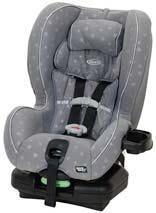 1. Infants use a rear-facing car seat to at least age two. Use your rear-facing car seat longer if the seat has higher weight and height limits. The next step to a forward-facing car seat is when your child is two years old or exceeds the car seat’s rear-facing height and weight limits and their head is within one inch of the car seat top.
1. Infants use a rear-facing car seat to at least age two. Use your rear-facing car seat longer if the seat has higher weight and height limits. The next step to a forward-facing car seat is when your child is two years old or exceeds the car seat’s rear-facing height and weight limits and their head is within one inch of the car seat top.
2. Toddlers use a forward-facing car seat (convertible or combo seat) until the harness no longer fits. Take the next step to a booster seat when your child exceeds the car seat’s height and weight limits, their shoulders are above the car seat’s top harness slot, or to the top of your child’s ear are above the car seat.
3. Boosters-use a booster seat with the vehicle lap and shoulder safety belts until your child passes the Safety Belt Fit Test.
Safety Belt Fit Test
a. Have your child sit back on the vehicle seat. Do his or her knees bend at the front edge of the seat? If they bend naturally, go to “b”. If they don’t, return your child to the booster seat.
b. Buckle the lap and shoulder belt. Be sure the lap belt rests on the upper legs or hips. If it does, go to “C”. If it rests on the stomach, return your child to the booster seat.
c. Be sure the shoulder belt rests on the shoulder or collarbone. If it does, go on to “d”. If it’s on the face or neck, return to the booster seat. Never put the shoulder belt under the child’s arm or behind the child’s back.
d. Check whether your child maintains the correct seating position for as long as you are in the car. If your child slouches or shifts position so the safety belt touches the face, neck, or stomach, return your child to the booster seat.
4. Safety Belts-Once your child passes the Safety Belt Fit Test, require him or her to use safety belts in a back seat in every vehicle on every ride, whether you are there. A lap and shoulder belt provides the best protection for your child and helps him or her to maintain the correct seating position.
If you are interested in having your car seat checked for size and safety, please call Littleton Regional Healthcare’s Maternity Department at 603-444-9567 to speak to one of the Child Passenger Safety Technicians.
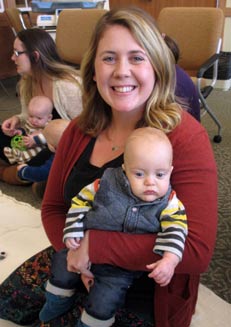
Baby’s Morning Out, a group for new moms and their babies, has become one of the most popular Birth and Parenting Programs here at LRH. Beginning in February 2000, the group has a loyal following with some mothers, who attended with their firstborn and now continuing with their subsequent babies. The seasoned mothers act as mentors for the newer mothers. The group meets on the FIRST and THIRD Fridays of each month from 10:00 to 11:30 in the Medical Office Building Boardroom. The Medical Office Boardroom is located on the second floor of the Medical Office Building.
Curiosity from passersby is common as the laughter and noise from both mothers and their infants reminds one of the friendly neighborhood kitchen gatherings of mothers in years gone by.
New moms love to talk about their many adventures with their new babies. Typical topics of conversation include learning to cope with sleep deprivation for parents, a crying baby, wondering if the baby is getting enough to eat, etc. Of course, the many moments of happiness with the wonder of their new baby is also shared with the group. Baby’s Morning Out seems to be an impressive vehicle for the development of pride and empowerment for these new mothers in their new role of parent.
For further information, please call 603-444-9335.
Philosophy
Littleton Regional Healthcare Lactation Services is committed to providing ongoing education, support, and encouragement with breastfeeding. Our beliefs align with the American Academy of Pediatrics, the American College of Obstetricians and Gynecologists, the World Health Organization, and the International Lactation Consultant Association, that breastfeeding is the very best form of nutrition for all infants. Our teaching is consistent with their guidelines. We know that breastfeeding contributes to the reduction of diseases and common illnesses in infants. Also, there are many long-term health benefits for women who choose to breastfeed. The American Academy of Pediatrics recommends exclusive breastfeeding for about the first six months and continued breastfeeding after solid foods are introduced as long as you and your baby desire, for 2 years or beyond. There are continued benefits from breastfeeding beyond 1 year and up to 2 years, especially for the mother’s health. This includes protection against diabetes, high blood pressure, and cancers of the breast and ovaries.
What are Certified Lactation Consultants?
Certified Lactation Consultants are healthcare professionals with specialized education and experience in breastfeeding and human lactation. Lactation Consultants work to prevent and solve breastfeeding problems and to encourage a cultural and social environment that supports breastfeeding families. A Lactation Consultant will work with a breastfeeding mother and baby to achieve the goals that the mother herself sets for breastfeeding.
When Should I See a Lactation Consultant?
Breastfeeding should not be painful or cause damage to your nipples. We encourage you to reach out if you are experiencing any discomfort beyond the first few suckles. In many instances, pain is caused by a latch that needs some adjustments and we can help you with techniques and positioning. There are many other reasons you might want to reach out to a consultant:
- To become informed about breastfeeding techniques and milk production before your baby arrives
- If you had difficulty nursing a previous baby
- If you have flat or inverted nipples
- If you had breast surgery, including reduction or augmentation
- If your baby is not gaining weight appropriately
- If you suspect you have an insufficient milk supply
- If your baby has difficulty latching
- If you had twins or your baby arrived earlier than 37 weeks
- If you need information about pumping and storage of milk
- If you need help preparing to return to work after maternity leave and have questions about expressing milk while away from your infant
Free Lactation Services
- Introduction to Breastfeeding Course; call 603-444-9335 to register
- Phone or email consultations
- Hospital consultations for breastfeeding difficulties
- Supplemental lactation devices if needed for more complicated lactation situations
- All nurses at the Sauter Birthing Suite are educated and able to assist with breastfeeding. There are also Certified Lactation Counselors on the Nursing staff who have completed a five-day intensive lactation course and can provide additional support to the breastfeeding mother.
Currently, Littleton Regional Healthcare employs International Board Certified Lactation Consultant: Jaclyn Siegel, APRN, FNP-C, IBCLC.
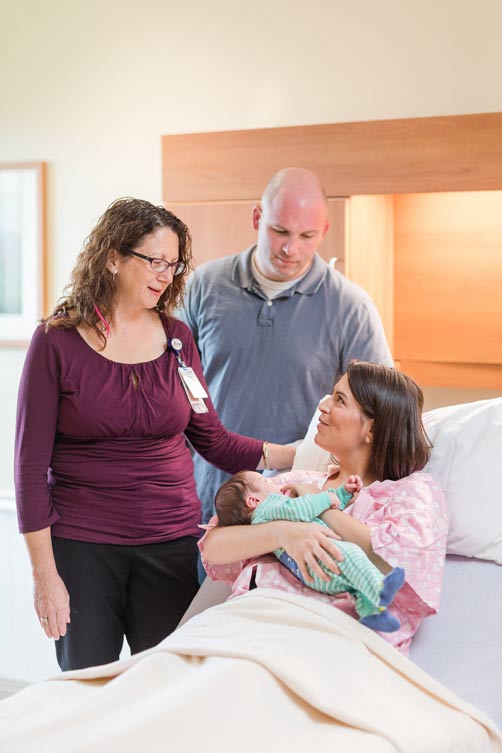
Breastfeeding – Getting Started
Breast milk is the best food a newborn baby can receive. The first few days of life are a crucial breastfeeding time for a new mother and baby. The newborn actively seeks nourishment for the first time, and the mother learns to handle and position her baby as he nurses at the breast. In the first few days of life, the baby receives colostrum, the earliest form of breast milk. Colostrum contains powerful immunological properties that help protect newborns against infection. Colostrum also coats the intestinal tract and acts as a laxative to help newborns have their first bowel movements of meconium.
In most instances, when a newborn nurse about every 2 hours in the first few days of life, breastfeeding and a breast milk supply becomes established with little difficulty. Sometimes, because of circumstances, the new breastfeeding pair needs more help. In these instances, trained lactation providers can be essential to help breastfeeding get underway and to help the new mother establish a robust milk supply.
Littleton Regional Healthcare offers just such valuable help to mothers through its Lactation Services Program. With the help of supportive maternity staff, the hospital offers professional, comforting support to breastfeeding mothers and babies during the critical newborn period. As difficult as breastfeeding can seem to some mothers in the early days, the process usually becomes much easier, with a little help, by the end of the first few weeks.
If a breastfeeding mother is having a hard time once at home, she is encouraged to return for help. A meeting can be scheduled with the lactation consultant by calling 603-444-9335. Once breastfeeding is established, many mothers can easily nurse their babies for as long as they like.
The American Academy of Pediatrics has a goal for women to breastfeed for at least 6 months. Healthy People 2020 also shares the goal of breastfeeding as the standard for newborns. We healthcare providers at Littleton Regional Healthcare will do everything we can to help mothers and babies achieve this outcome.
.
All the Maternity Department’s internal entrances are secure; all employees use a pass card to enter and visitors are asked to use the red phone, next to the main entrance, to speak with the nursing staff before entering the department. This enhances privacy and security for patients, their families, and our staff.
This group is sponsored by Littleton Regional Healthcare and provides a safe, compassionate space for individuals and families who have experienced the loss of a baby during pregnancy, at birth, or shortly after. This support group is led by an obstetrics nurse facilitator to support the group and ensure meaningful conversations.
loss of a baby during pregnancy, at birth, or shortly after. This support group is led by an obstetrics nurse facilitator to support the group and ensure meaningful conversations.
With the hope of providing emotional support, connection, and understanding, this group offers a comforting space for shared experiences and open dialogue to reduce feelings of isolation and honor every participant’s grief journey.
Held the last Wednesday of each month, 5:30 to 7:00 PM in Conference Room 3 at Littleton Regional Healthcare (located near cafeteria, use Urgent Care entrance) 600 St. Johnsbury Road, Littleton, NH 03561
Hosted by Tina Keach, RN, RTSCBC, OB Manager.
For more information, please call: (603) 444-9351
